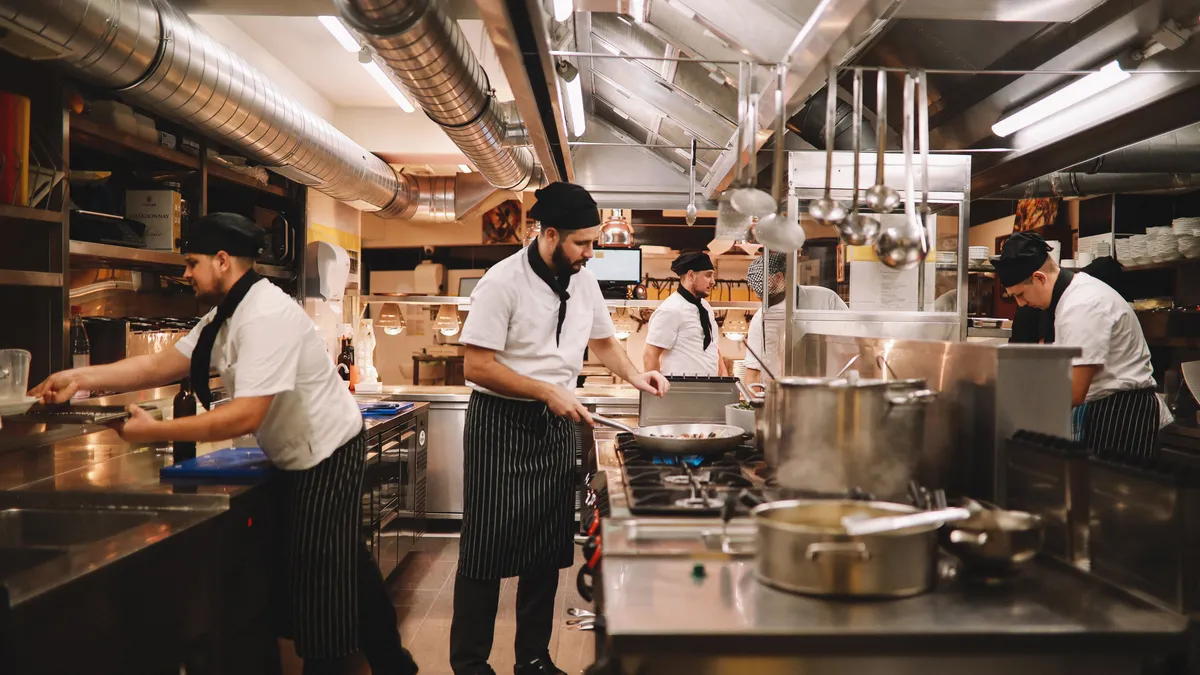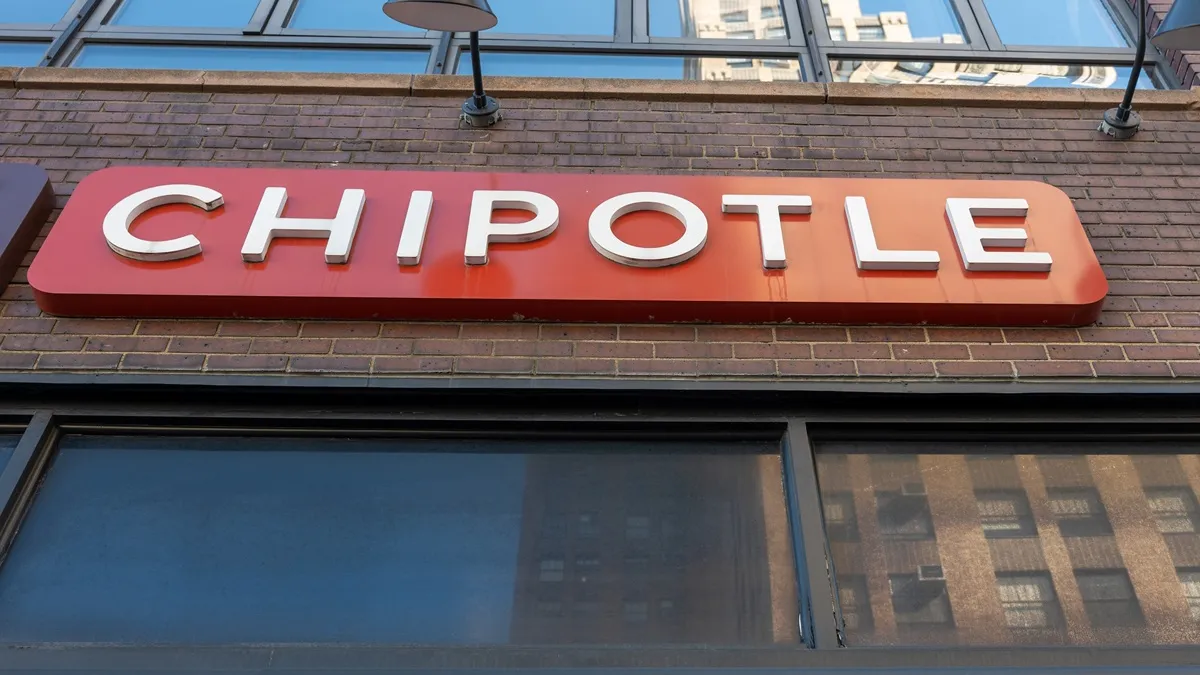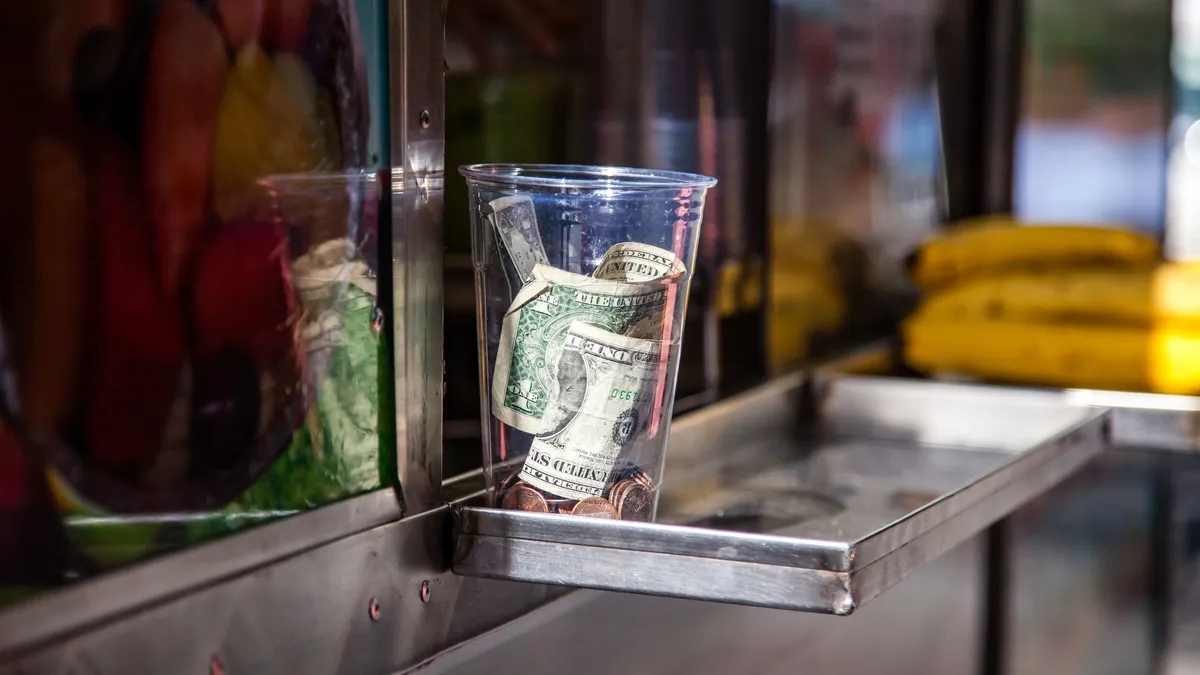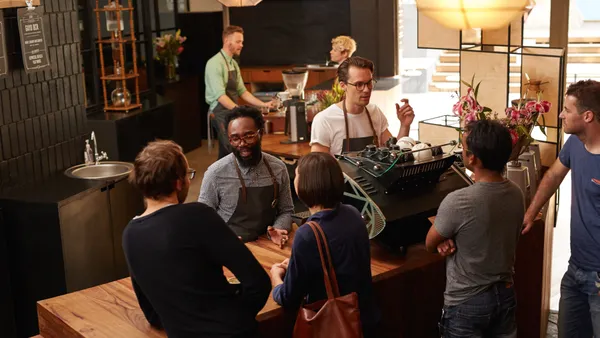In the face of mounting tariff costs, flexibility will be key for restaurants, experts say. The status of “reciprocal” tariffs — which the Trump administration has implemented on imports from nearly every major economy — can change on a dime, forcing a proactive strategy, said Euromonitor International Senior Consultant Ryan Tuttle.
There is currently a 90-day pause on the reciprocal tariffs, and the Trump administration raised the rates on Chinese imports to the U.S. to 125%. It also kept a baseline tariff rate of 10% percent in effect for most nations.
Tariffs could affect the cost of food items and ingredients, as well as kitchen appliances, furnishings, and construction materials. But there are a number of ways restaurant owners and chains can navigate supply challenges and mitigate added costs, experts say.
“Don’t be hasty,” Tuttle warned. Anything that’s proven reliable, such as good employees, suppliers, and ingredients, will be very valuable to restaurants and shouldn’t be reduced for cost’s sake while the tariffs are active, he said. In the short term, though, operators will feel the pinch of those costs.
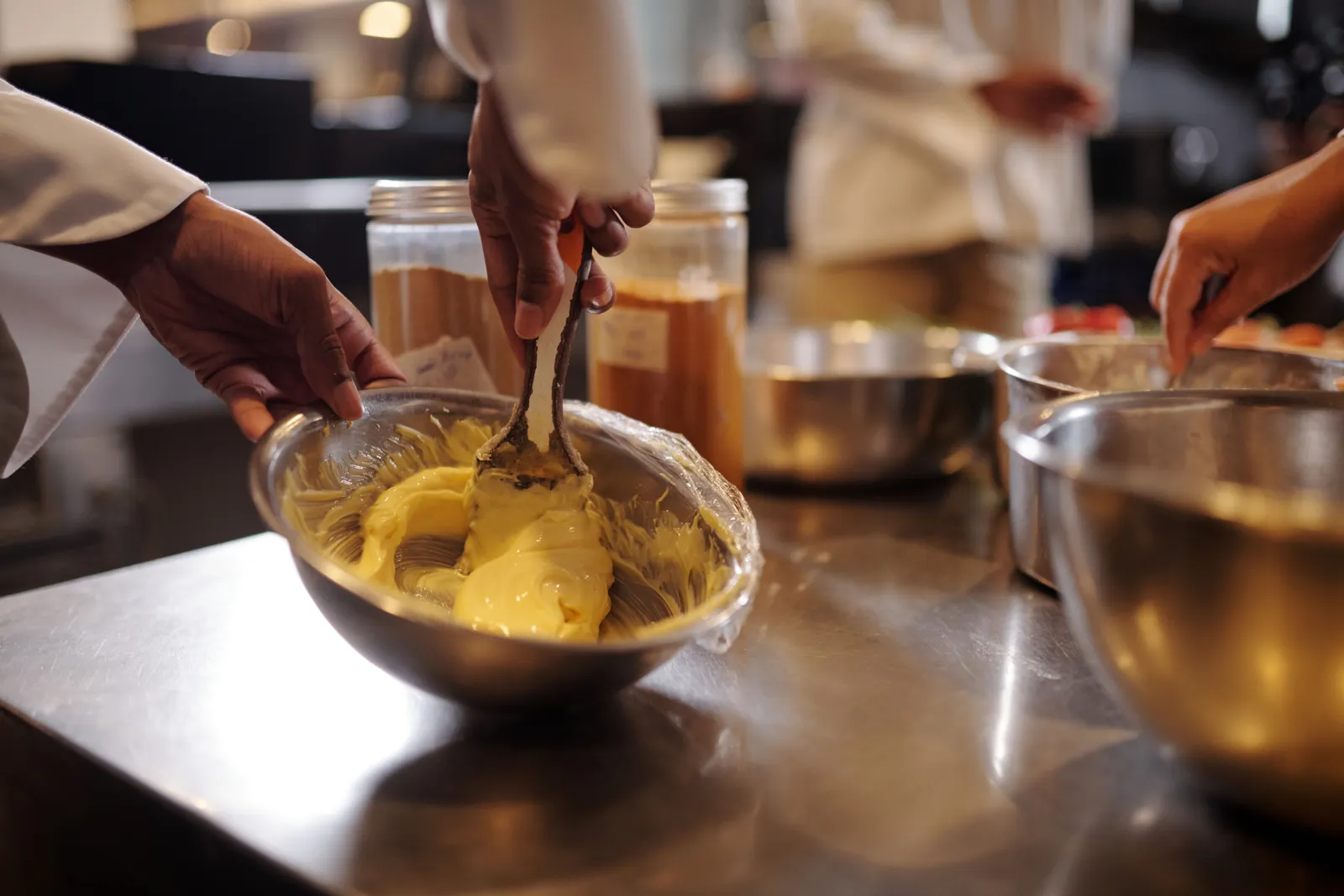
Ingredients, equipment are vulnerable to rising costs
The 125% duties on Chinese goods will be especially disruptive for operators, as the country exports many staple restaurant ingredients to the U.S.
China is a major supplier of Stevia, fruits and juices, spices, and vegetables such as garlic, said Jay Halpern, partner at ArentFox Schiff, a law firm that represents food and beverage companies.
It may also be challenging to import fish-based products that are processed and re-imported through China depending on how tariffs are implemented, Tuttle said.
Some kinds of animal feed have been included in tariffs or proposed tariffs, which could impact beef prices, Halpern said. The price of furniture, fixtures and equipment like ovens, freezers and beverage packaging could also be affected, as aluminum and other equipment components are subject to tariffs, he said.
Small restaurants could be impacted by tariffs on a range of other ingredients produced in other countries as well, including extra virgin olive, fryer oil and sugar, Cheetie Kumar wrote in an email. Kumar owns the Raleigh, North Carolina-based restaurant Ajja and is vice president of the Independent Restaurant Coalition.
Imported prosecco, pinot grigio, chianti classico, as well as artisanal wines from small independent distributors who ship container by container, could also be a pain point for operators, Carlin Karr, wine and beverage director of the Boulder, Colorado-based Frasca Hospitality Group, wrote in an email.
But the U.S. had “an incredibly soft 18 months” of liquor and wine sales, which has created an abundance of stateside inventory that wasn’t subject to tariffs, Karr said. That means beverage price increases won’t happen overnight, giving restaurants time to discuss different options with distributors, find new selections, negotiate with vendors, and re-price menu items, she said.
Still, added costs can be “existential” for independent restaurants that cannot absorb any additional costs, as they already operate on margins between 3% to 6%, said Kumar. That could lead to restaurants putting off new hires or reducing hours.
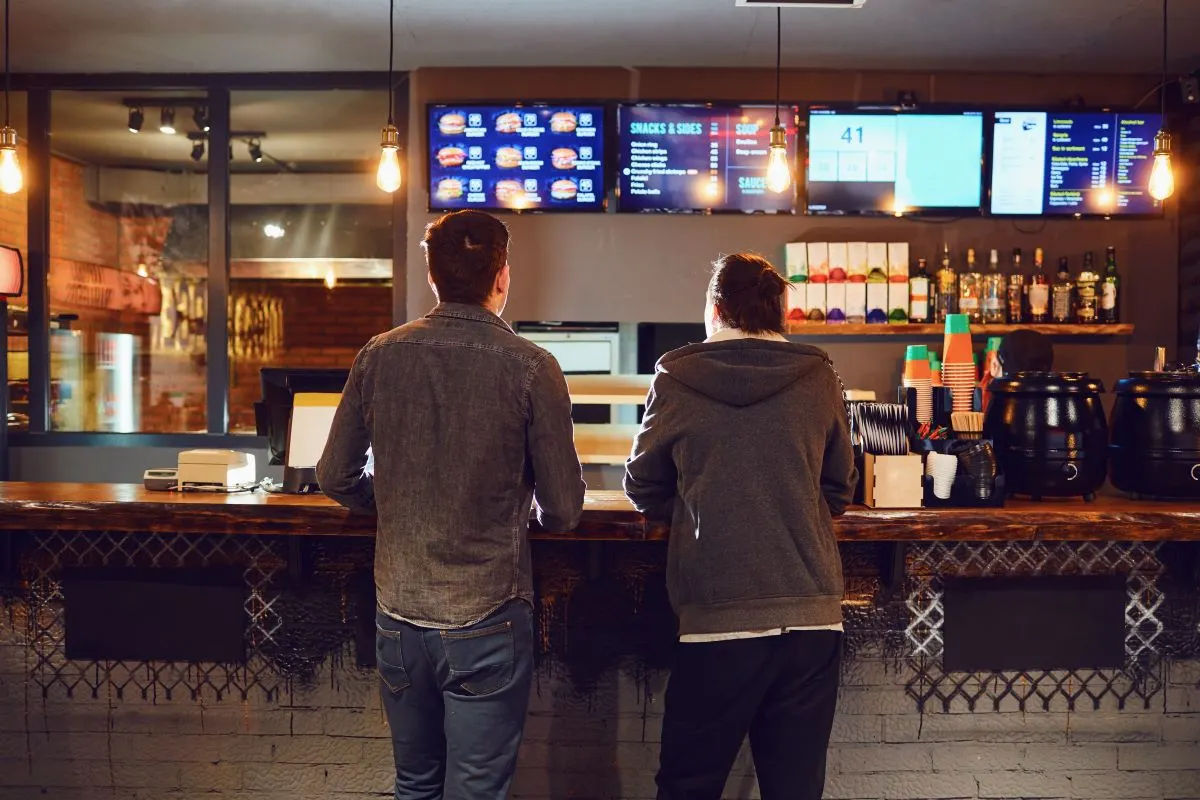
Menu and supply chain flexibility is key
There is no magic bullet to mitigating the effects of tariffs, and any solution — like temporarily increasing menu prices or adjusting menu items or recipes — needs to be implemented carefully to avoid alienating customers, said Halpern.
"Be nimble, be ready to change your menu, focus on reducing waste, reduce expensive cuts of meat. Celebrate your local farmer,” Kumar said. “At the end of the day, everything will be more expensive."
Brands that ArentFox Schiff works with are considering a mix of strategies to navigate the tariffs, such as diversifying or changing suppliers, said Halpern in an email.
Zingerman’s Roadhouse in Ann Arbor, Michigan is able to change its menu daily, allowing it to adapt to price changes caused by tariffs, Bob Bennett, the restaurant’s head chef and an IRC board member, wrote in an email.
Restaurants should consider whether they can get the products they are importing from domestic sources or if they can stock up on them, Bennett said. Zingerman’s Roadhouse, for instance, is storing up tellicherry black peppercorns that they source from India by way of Montreal, Canada.
When companies start increasing prices, some will likely try to associate them with the tariffs on their menus by adding tariff surcharges, said Tuttle. A number of retailers have already implemented visible tariff surcharges on receipts.
Restaurants can also mitigate the impact of cost increases by incorporating some degree of flexibility surrounding the ingredients they use or the menu items they offer, and hold regular discussions with their team, suppliers and counsel, said Halpern.
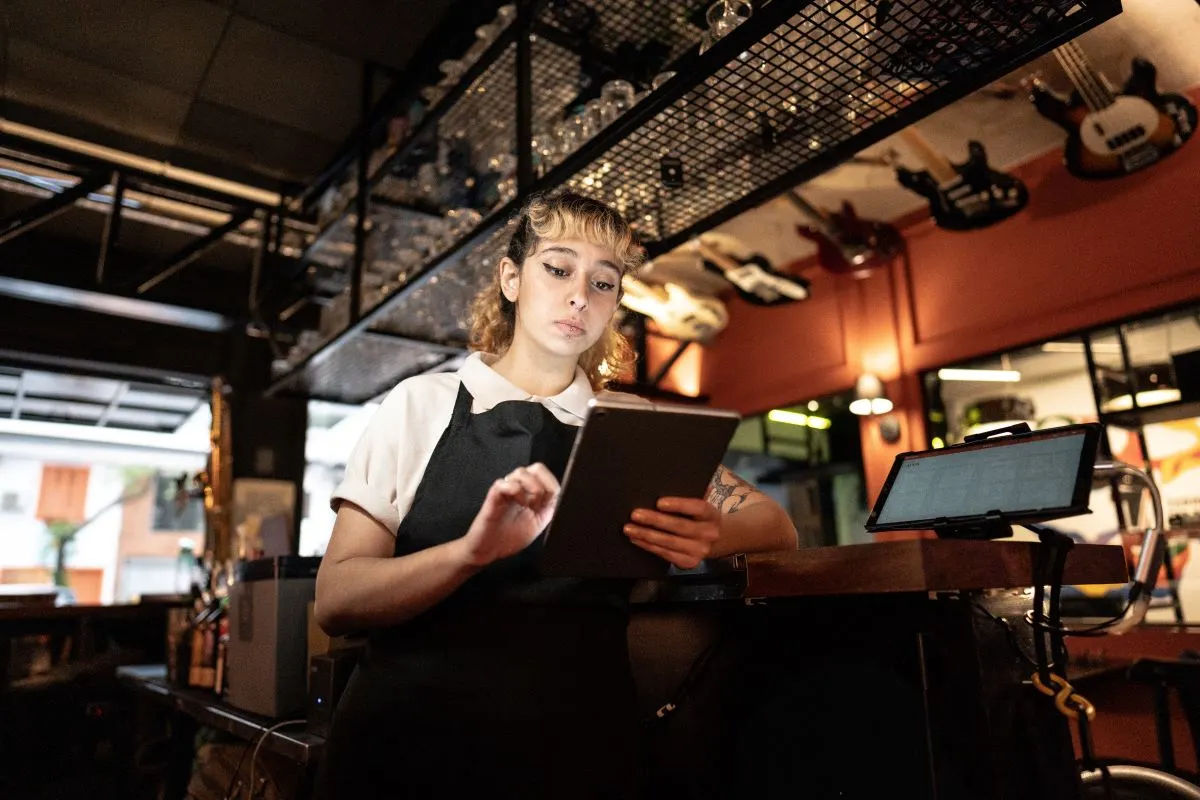
Control operational costs
Restaurants should maximize efficiency in parts of their business that they can control to help offset increased supply costs caused by tariffs, said Halpern. That includes implementing new tools, such as AI-powered supply chain management or reservations software, or faster check and credit card processing solutions to help drive down costs and increase revenues, he said.
Operators can also consider moving forward with projects in the pipeline so they can purchase the needed raw materials, like lumber, before they rise in price, said Tuttle.
Restaurants should ensure they retain talented, trustworthy members of their staff that they can lean on during challenging times — especially those who were battle-tested during the pandemic, said Tuttle.
There’s also opportunities for restaurants to use lessons learned during the Covid-19 crisis, like simplifying and reformatting menus or looking for alternative ingredients, said Halpern.
“The sooner they start brainstorming solutions, such as menu innovation, sourcing locally, having back-up suppliers, and renegotiating current contracts, the better,” he said.
Victor Albisu, founder of Mid-Atlantic fast casual chain Taco Bamba, echoed this sentiment.
“Successful restaurateurs are very resilient and find ways forward. So I’d like to believe that no matter what’s presented to us, we can find a path that makes sense,” said Albisu.
It’s unclear how cost increases on imported food such as avocados and tequila, and building materials like wood and steel, would affect Taco Bamba’s finances and expansion plans. Still, Albisu is optimistic.
“If you have the right people, the right brand, the right products, anything’s possible.”


